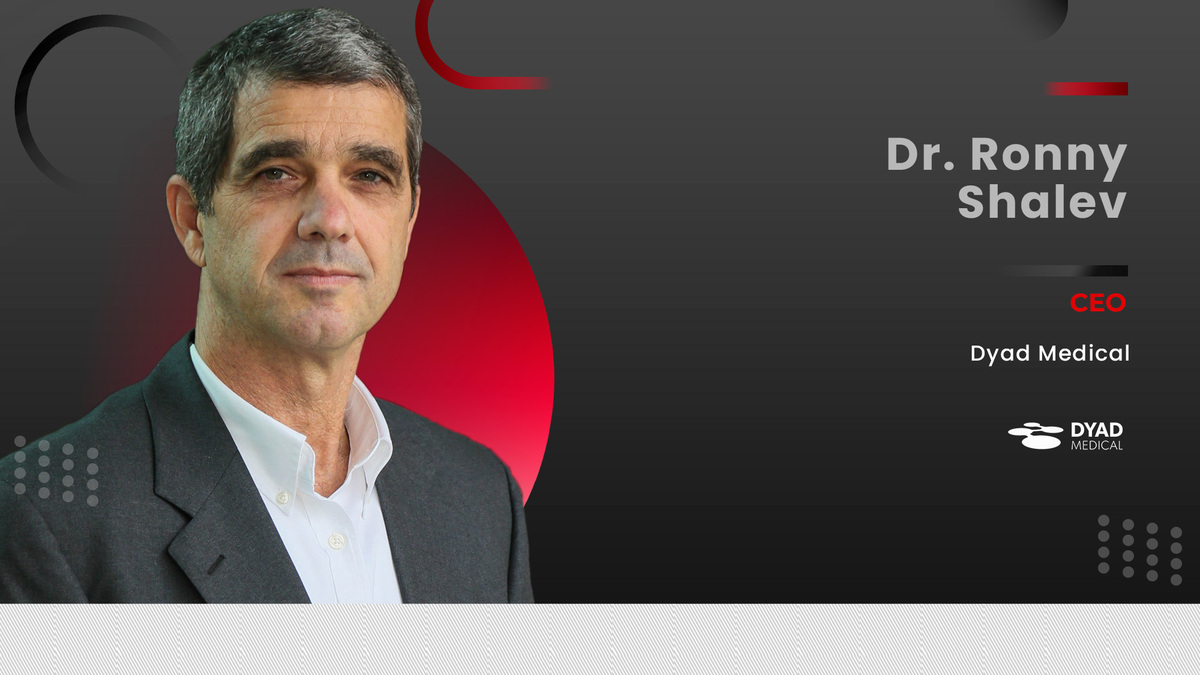Hi, Ronny, can you tell us about your journey in Tech?
I started my career as a software engineer at IBM R&D in Israel, focusing on medical archiving systems and remote analysis. I’ve also managed sales and marketing teams around the world, where I became aware of various cultural differences in business. I learned to embrace those differences and saw them as a strength rather than a weakness. This philosophy helped me develop my startup, Dyad Medical, LLC (Dyad). Since founding Dyad, we’ve developed artificial intelligence that automatically analyzes the content of cardiac imaging. That software has since gained FDA clearance for our intravascular optical coherence tomography imaging software and we continue to improve the technology to provide better patient outcomes.
How has the COVID-19 pandemic reshaped your view of the business environment that your business operates in?
The pandemic showed the importance of digital health and how technology can help healthcare facilities deliver safer care. Our technology is cloud-based, meaning the software can be accessed from anywhere in the world with internet access. With our software, the patient can still receive quality healthcare without having to leave the comfort of their home.
What sets Dyad Medical apart from the competition?
Because our technology is all cloud-based, it is accessible from anywhere in the world – hospitals, imaging labs, educational facilities, even a physician’s home office or their laptop if they are traveling. Organizations that offer similar services are only accessible on a single computer and have to be used in a hospital or healthcare facility. Our product can be used anywhere and it does not have the burden of transporting large hardware. We ensure all patient data remains private and secure.
Our AI software is also organ-specific, focusing on the heart rather than focusing on the imaging modality. Unlike our competitors, our technology is able to interpret and analyze multiple imaging modalities, giving users the ability to quickly interpret images from different scans. This unique feature helps cardiologists and radiologists provide a faster and more accurate diagnosis, ultimately improving the quality of care.
Also Read: MarTech360: Interview With Yogeeta Chainani, Co-Founder And CEO, Swaarm
How do you see the Online Healthcare sector evolving over the years to come?
We’ve already seen a huge transformation in healthcare facilities adopting digital technologies in recent years. In the years to come, I see these facilities relying more on cloud-based technologies so it’s easier to access tools that help care providers do their jobs while maintaining health data privacy. Especially in light of the pandemic, I imagine online healthcare will become the industry standard much faster than previously thought.
Your top pick for a book on marketing/sales that everyone should read?
Since starting Dyad Medical, I’ve spent most of my time reading scientific journals, articles and talking with my advisory board members about the advancements in cardiac imaging technologies. But one book about marketing on my list is “All Marketers Are Liars: The Power of Telling Authentic Stories in a Low-Trust World” by Seth Goodwin.
Top 5 apps that you use for business?
As the founder of a two-year old startup, communication and staying organized is a key part of our success. For general communication with investors, customers and our clients Gmail is our go-to tool. Our small but high-performing team of engineers we’re able to efficiently keep each other in the loop using Google Meet and Google Chat. To stay-on-top of important meetings, we coordinate schedules using Google Calendar. Efficiency is critical to keep track of deadlines and other projects so we use Monday.com to automate team project management.
What metrics do you use to define success?
Success means different things to different people. For some, it may be about controlling their time. For others, it’s about money. In my case, I do not define success as a fixed goal to achieve because every time I achieve a goal, I raise the bar to the next goal. So I suppose I measure success by demonstrating the ability to constantly and consistently make progress and keep things moving. Of course, for a startup, revenue is always a great initial sign of success.
As a business leader, what is the one piece of advice you would give to those who aspire to the C-suite?
One of my favorite quotes is, “He who dares, wins.” It does not mean that anyone who dares to do something extraordinary wins, but it definitely means that if one does not dare, he/she is sure to not win. You have to take chances and those who are willing to put up a struggle have a better chance at success.
Thanks, Ronny!
Also Read: MarTech 360 Interview With Sergio Serra, Product Head, InMobi


Comments are closed.